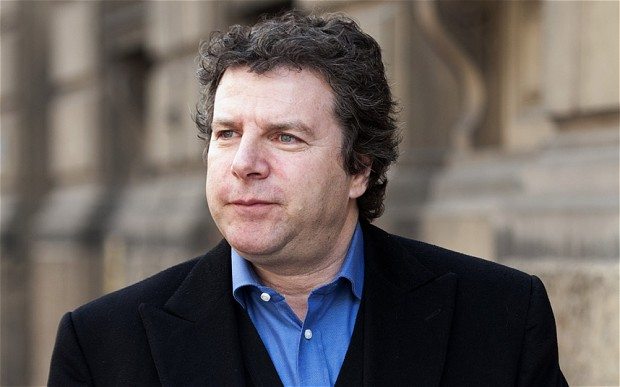He was the very embodiment of the flash City trader – a self-made millionaire who rode the wave of the 1980s big bang to become a financial player famed for throwing lavish parties attended by celebrities and leading business figures.
But Nicholas Levene’s story was ended at Southwark crown court when he was sentenced to 13 years in jail on Mondayfor swindling investors out of more than £32m, reports The Guardian.
The 48-year-old former stockbroker, who once checked himself into London’s Priory clinic for his gambling addiction, orchestrated a lucrative Ponzi scheme to live a life of luxury, raking in hundreds of millions of pounds between 2005 and 2009, the court was told.
Among his victims were Richard Caring, the restaurant tycoon who owns The Ivy and Le Caprice in London’s West End; Sir Brian Souter and his sister Ann Gloag, the founders of the Stagecoach bus and rail group; Russell Bartlett, director of the R3 Investment Group and ex-owner of Hull City FC; and Ray O’Rourke, founder of construction firm Laing O’Rourke.
Sentencing Levene, who pleaded guilty in September to 12 charges of fraud between 2005 and 2009, Judge Martin Beddoe said: “It was a fraud from the outset, where countless lies were told. It was rank dishonesty. There were separate acts of individual moments of betrayal.”
Levene – known as “Beano” because of his love of the comic book – once had an estimated wealth of £15m to £20m and was a former vice-chairman of Leyton Orient Football Club. Barry Hearn, the club’s chairman, once described him as a “nice family man [with] three lovely kids”.
But Levene was also a compulsive gambler who loved a spread bet before his empire collapsed in bankruptcy. Levene told investors he had bought shares on their behalf but instead spent the money on buying property in the UK and Israel, expensive guns, flash cars, private schools for his children and flying friends to parties in St Tropez. He once spent nearly £600,000 on a family celebration and his parties attracted luminaries such as Simon Cowell and Sir Philip Green, the retail tycoon who owns Topshop.
Once one of the best-connected figures in the City, Levene also counted Jeremy Isaacs, Lehman Brothers’ former London boss, as his friend.
To keep up the illusion Levene provided investors with false “profits”, conning them into believing he was a successful trader. The profits were in fact funds from new investors – a classic Ponzi scheme, such as the one run by the American fraudster Bernard Madoff, where money is taken from one client to give to another.
The son of an electrician, Levene quit school at 15 without qualifications and joined the London Stock Exchange as a trader in the runup to the big bang deregulation of the City in 1984. He described himself as having 25 years’ experience in the equity and derivative markets, having worked at the stockbroker Phillips & Drew, the moneybroker Tullett & Tokyo and Trio Equity Derivatives, where he was managing director. He also worked as an executive director at the hedge fund Integrated Asset Mangement.
His sales pitch was that he could get access to share offerings in companies that were unattainable for ordinary investors. Between 1 January 2005 and 31 October 2009 he pocketed more than £250m from investors, according to the Serious Fraud Office (SFO).
The fraud came to an end in 2009 when several investors sued him in the civil courts to recover their money. Gloag and Souter, for example, handed Levene £5m each to invest in fundraisings by the mining firm Xstrata and HSBC bank.
When they made £3.8m each they instructed him to sell, but said they never received the capital back or the profit they were due. Their litigation marked the beginning of the end for Levene. The Essex businessmen Victor Lupson and John Bennett made a claim for £38m. Levene was also chased by spread betting firms.
Levene also admitted one charge of false accounting and one of obtaining a money transfer by deception.
He was declared bankrupt in the high court on 7 October 2009 and the SFO started a criminal investigation the same month. The SFO said he used the money to fund his lavish lifestyle. More than £18m was spent on property, luxury holidays and other lifestyle expenses.
Jonathan Midgley, lawyer for the SFO, said: “This was a complex and extensive fraud where Nicholas Levene used investors’ monies to finance a lavish personal lifestyle.”
Confiscation proceedings have been fixed for 25 March at Southwark crown court. Separately, a Deloitte partner, Louise Brittain, who was appointed trustee in Levene’s bankruptcy in 2009, has still not finished collecting all his assets.
She said they could be worth tens or hundreds of millions of pounds. His villa in Israel and chauffeur-driven Bentley have already been sold and the bulk of the remaining assets are property and bank accounts, both in the UK and abroad.
It is one of the toughest sentences ever issued for financial fraud. Abbas Gokal was jailed for 14 years for his role in the Bank of Credit & Commerce International fraud in 1997 and later got a further three years’ imprisonment for failing to comply with his confiscation order.


